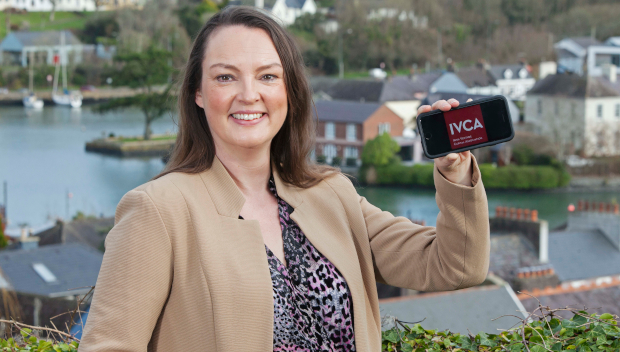
Capitalising on tech sector success
The Great Resignation. Remote working. Even a flight from the capital to the countryside. Many of the effects of the pandemic are no mystery, but others have come as something of a surprise.
Rather than flatlining, the global economy has motored on throughout the chaos. Admittedly, state support has been a major factor in this and we have yet to see what will happen when the handouts are withdrawn. Nonetheless, there are reasons to be positive: while supply chain chaos is still bedevelling IT procurement (and the price of cardboard boxes, apparently) the kinks are slowly working themselves out.
Increased dependence on IT has itself created opportunities, though; ones that could outlast any economic impact of the pandemic response. Early signs include that Irish mergers and acquisition activity, driven by the technology, media and telecoms sector (alongside financial services, a sector no stranger to IT), is at highs not seen since 2006, with 2021 seeing a 33% rise on the previous year.
It’s not just a story of large corporates gobbling-up other businesses, though. The Irish start-up scene has made a sudden demonstration of its rude health. The most recent quarterly survey [PDF] published by the Irish Venture Capital Association (IVCA), released last week, showed new highs in capital inflows. Previous quarters were no slouch, either. All-in-all, 2021 saw a 44% increase in VC funding to Irish tech start-ups, amounting to a record-breaking €1.3 billion in investment, the IVCA said.
The association went on to argue that this would form an important part of Ireland’s post-pandemic economy.
“The indigenous tech start-up and SME sector appears to be well positioned to benefit from and contribute to a strong post pandemic jobs recovery,” said IVCA chairperson Nicola McClafferty in a statement.
Caution or optimism
Across the world the unicorn hunt has captured the attention of investors and policymakers alike. Whether the money is being well-directed is the question. Well-known tech commentator Andrew Orlowski, now a consultant leading Think Of X, said the world was now in a global asset bubble where too much money is chasing too few good ideas.
“It’s resulted in a surfeit of VCs and ‘innovation consultants’ and what I call ‘entrepreneurship as a lifestyle’. Here the goal is not to build a lasting business, but to find the next investor,” he told TechCentral.
The start-up intended only ever to be bought out and shut down is certainly a recognisable phenomenon.
His prediction for the future was blunt: “Rising interest rates will put pay to many of today’s unicorns”.
Indeed, rising interest rates, not to mention the threat of conflict in Ukraine and tensions around China and Taiwan, have certainly spooked markets in recent months, not to mention a general sense that the securities are over-inflated, particularly with money from retail investors who took to buying shares, ironically, as the era of low interest rates was making a nonsense of stuffing cash into savings accounts.
Nonetheless, for every tech business suffering a collapse in value – think Peloton – there are others, large and small, working away on the technologies that we use to run the world. The inherent risk faced by VC is that it is a bet on what those technologies might be tomorrow. We simply don’t know what will work and what will fall flat, but this risk is also what creates the reward that lures venture capitalists in the first place.
VC is a particularly risky business for governments: after all private money squandered is a problem for some, but throwing good public money after bad is a problem for everyone. Nonetheless, public investment in industry is not just a case of taking a punt; it is an investment in the country in the broadest sense of the word.
Tánaiste and Minister for Enterprise, Trade & Employment Leo Varadkar recently announced a €90 million fund, the Irish Innovation Seed Fund Programme, for domestic start-ups, including in several sectors that fit squarely into the definition of high technology: life sciences, healthcare and pharma, fintech, technology and digitalisation, and food and agri-tech. A more modest early-stage fund has also been announced in the form of the €1 million Enterprise Ireland Competitive Start Fund.
If the global economy is in a precipitous position, and it certainly appears so, the answer is not to abandon investment so much as to develop policies that support economic activity, and in a world where globalisation and foreign-direct investment are no longer the order of the day, growing Irish business is a sensible move.
While Dublin is often thought of as the tech capital of Europe, not only does it face stiff competition from Lisbon, Berlin and even Paris, but it became a tech leader due to the arrival of US-based multinationals seeking a toehold in the EU. What would be really interesting would be a turning of the tables where overseas money grew Irish domestic businesses.
The IVCA’s figures indicate that this is starting to happen, at least at start-up level, recording 57% of funding in 2021 coming from overseas investors. It may also indicate Irish investing finally growing up. “We are starting to build an equity culture here, as opposed to just a property investing one. This for me is a great way to de-risk the state capital. The more private capital there is the less of a percentage stake the state will have in each deal or company, spreading and diversifying their risk,” Sarah-Jane Larkin, director general of the IVCA wrote in an e-mail to TechCentral.ie.
It’s a start. Perhaps, in the fullness of time, Ireland will even get a national champion.








Subscribers 0
Fans 0
Followers 0
Followers